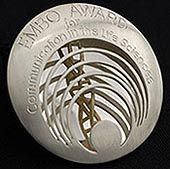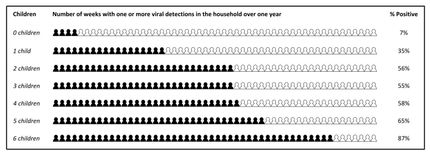Dolphins could be ideal model to study human cervical cancer, UF veterinarians say
Advertisement
After testing dozens of samples from marine mammals, University of Florida aquatic animal health experts say they have found the ideal model for the study of cervical cancer in people.
“We discovered that dolphins get multiple infections of papillomaviruses, which are known to be linked with cervical cancer in women,” said Hendrik Nollens, D.V.M., Ph.D., a marine mammal biologist and clinical assistant professor at UF’s College of Veterinary Medicine at the annual meeting of the American Academy for the Advancement of Science. “Dolphins are the only species besides humans that we know of that can harbor coinfections, or infections of multiple papillomavirus types, in the genital mucosa.”
There are approximately 100 types of human papillomaviruses, and multiple infections of up to eight HPV types have been reported in humans, he said.
“Even more surprisingly, some virus groups have shown the ability to cross the marine-terrestrial ecosystem boundary — from sea to land,” Nollens said. “We have demonstrated at least one case of genetic recombination between viruses of human and marine mammals. So while it’s exciting that dolphins can provide a unique window into the role of coinfection in human cervical cancer, we can’t rule out that the next high-risk virus, such as SARS, or West Nile, might actually come from the marine environment.”
The presence of coinfections is believed to be one of the biggest risk factors for the development of cervical cancer in humans, Nollens said, although he added that there is no evidence that dolphins develop the disease.
“Why do people develop the disease, but dolphins don’t? If we can figure out why, the human medical community might be very interested in how that information might be applied to human strategies for preventing the disease,” he said.
Of all creatures that inhabit the ocean, dolphins and other marine mammals are the closest relatives of humans, but researchers say scientific knowledge of infectious diseases, particularly viral diseases, affecting these animals is limited.
In hopes of shedding more light on the nature, prevalence and potential of such diseases to be passed to humans, Nollens and his colleagues at UF’s Marine Animal Disease Laboratory have embarked on a large-scale collaborative research project to catalogue previously unrecognized and emerging viruses of marine mammals, both in collections and in the wild.
Over a four-year period, some 1,500 blood, tissue and fecal samples taken from dolphins have been analyzed at different laboratories across the United States, Nollens said. No animals were harmed during collection of cell and tissue samples, although some were obtained from animals that have died of natural causes in the wild.





















































